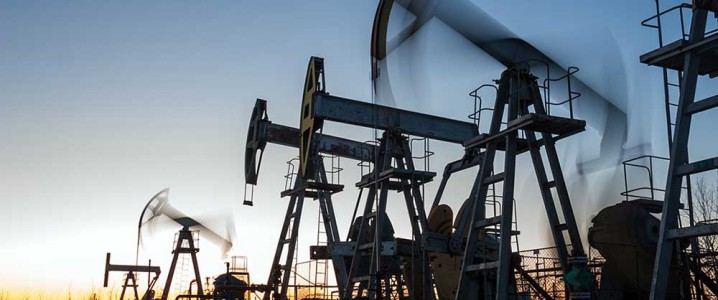Photo caption: Oil facility
While Canada holds significant oil and natural gas reserves, it currently produces substantially less than Russia, making a full replacement challenging.
Canada’s energy sector faces regulatory hurdles that hinder its ability to rapidly increase production and exports to meet global demand.
Despite having the resources, Canada’s infrastructure and government policies need adjustments to compete with established energy exporting countries like Russia and the United States.
“G7 members must fully ban imports of Russian energy – oil, coal, natural gas, uranium. Canada, with the world’s fifth-largest oil reserves and as a top-three uranium producer, can help fill the gap.” The statement was made this week by the head of the G7 research group, a University of Toronto political science professor.
But can Canada really replace Russia entirely on the global energy scene? That might be tough.
Both Russia and Canada are in the top five oil producers globally. Russia is third, and Canada is fourth, with the top two places occupied by, respectively, the United States and Saudi Arabia. Russia produces over 9 million barrels daily—and can produce more than 10 million bpd without major effort—and Canada produces around 5 million barrels daily.
That’s already reason enough to take John Kirton’s statement with some skepticism—it is physically impossible for a country that produces 5 million barrels daily to replace one that produces almost twice that amount. This is an interesting state of affairs because Canada certainly has the resources to do that: it ranks third in the world in terms of oil reserves, with 171 billion barrels, most of those in the oil sands. Russia, in comparison, has less than half that, at some 80 billion barrels. Yet there is also the matter of politics and prices—and whether Canada can ramp up production to match Russia’s, hypothetically.
Canada is notorious for its red tape in the energy industry. Several consecutive liberal governments have done their best to stifle the industry with ever more environmental requirements that have added to producers’ costs and made it more difficult for them to do business overall. And yet Canada has been producing more, and not less oil, despite the tightening regulatory grip. So, there is plenty of demand out there—especially south of the border.
Canada exports most of its crude to neighbor U.S. There are sound reasons for that, and the biggest and simplest of them is geography. Moving oil from Canada to the United States is simple geographically and makes sense economically, so that’s where almost all of Canada’s oil has been going, until recently when authorities in Ottawa decided some diversification might be a good idea. The main diversification direction is Asia. Europe does not import crude from Canada—yet. Neither does Japan—but it can import Canadian LNG gladly.
So, replacing Russia as an oil supplier to the G7, although certainly possible in terms of reserves, would be challenging in terms of implementation because first, Canada would need to boost production rather sharply, and to do that, the government would have to give up its net-zero plans that envisage ever-tightening regulations for the energy industry.
In natural gas, the situation is similar, although this time, the reserve scales are tipped in Russia’s favor. The country has the largest reserves in the world, followed by Iran, Qatar, the United States, and Saudi Arabia. Canada is not in the top 10, but this is not the most important factor when it comes to exports. The most important factor is the presence of export infrastructure. Russia has half a dozen functioning—albeit sanctioned—LNG plants and is building more. Canada is yet to complete its first one. And it will need more to become an international gas player—where it would have to compete with the world’s top LNG exporter, neighbor U.S.
So, while Canada certainly has the natural resources to become a force to be reckoned with on the global stage, turning these resources into exports that could replace one of the established top players in that state would be tricky due to government policies. It will also take time. Ignoring this serves no one’s interest, especially not the interests of the G7.
=== Oilprice.com ===



